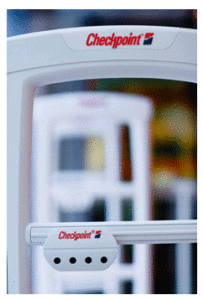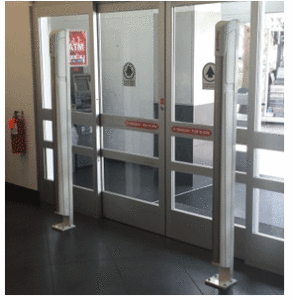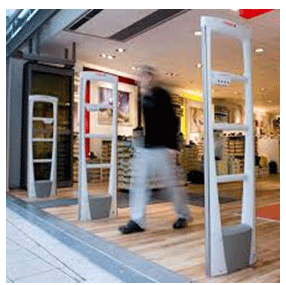Happy Holidays! Or, are they really? Retailers are not the only ones that suffer from theft during the holiday season. Yes, shoplifting, employee theft, and merchant thefts occur more during the holiday season than at other times of the year for retailers, but people around the country are more and more vulnerable to theft that occurs at their front door. Have you bought anything online? Has it been delivered? There are many stories of packages being delivered, but never actually received by the recipient. Where is it? Some of them at least are at the hands of thieves that go prowling neighborhoods in search of delivered packages left at your front or side door. If you ordered something online and won’t be at home during the day, asking a neighbor to accept the package for you is not imposing, it is just neighborly. Take precautions this holiday season to avoid being the victim of theft.
For more about this and other stories, follow the links below.
Chamblee Police: Tips to Avoid Becoming a Holiday Crime Victim
Chamblee, GA, December 5, 2016 – The Post Reports – The Chamblee Police Department provides the following information on why thieves love the Holiday season and what you can do to prevent becoming a victim.
Why Thieves Love the Holiday Season
All the hustle and bustle going on over the holidays gives thieves what they want, almost as much as an unlocked bank vault and that is the opportunity to become invisible. Thieves can move through big crowds of rushed and distracted people without anyone noticing them. They can pickpocket and shoplift and when their victims realize that they have been robbed, they will have no idea who did it.
Thieves Feed on Opportunities
Thieves know that the police are overloaded during the holiday season and they take full advantage it. They thrive on the fact that the police and stores’ loss prevention staff have their hands full with amateur thieves who are hauled to jail for trying to steal from the electronics departments or waiting for the parents of teenagers who pocketed the latest video game.
In the meantime, the professional thieves are busy breaking into cars in the parking lots to steal gifts, cell phones and electronics or stalking and robbing. Some thieves prefer burglarizing homes. They spend their time walking neighborhoods, looking for houses that appear that the homeowners are away. Darkened homes nestled between neighbors with front yards bursting with holiday lights will draw their attention.
Albany police encourage businesses to be on constant crime watch
businesses should increase their vigilance, watching for crime in their stores, as shoplifting and thefts increase during the holidays.
It’s a serious issue, because a large theft in a small store could mean a merchant having to go out of business.
Chuck Roberts has owned John Ross Jewelers at his Dawson Road location for 30 years, and one reason he has been so successful is he was already thinking about criminals when he designed the shop.
“We built this store the way it’s built, to stop the shoplifting,” explained Roberts.
Police said that during this time of year, shoplifters and thieves increase their activity, because stores have more customers to hide among, and there is more on hand to steal.
“They have more merchandise available. So there will always be someone who is looking to find an illegal way to acquiring that merchandise,” said Albany Police Chief Michael Persley.
Roberts has well established trade practices to deter thieves and lots of surveillance cameras watching customers, because he has thousands of dollars worth of jewelry in his store cases, and knows crooks will go to almost any length to steal them.
Consumers beware of holiday crimes
TERRE HAUTE, Ind. (WTHI) – The winter months cover a time of seasonal giving and cheer.
Unfortunately, crime doesn’t pause for the holidays.
Especially after major online shopping events like Cyber Monday.
Ryan Adamson with the Terre Haute Police Department says you have to watch out for the occasional Grinch looking to steal.
He says, “Thefts of packages increase this time of year. Somebody is at work, they get a notification on their phone that UPS, or Fed-Ex, has dropped off a package. They get home and lo and behold, it’s not there. So be mindful of where your packages are going.”
Criminals are looking for an easy steal, so what is easier than an unattended package on a door step?
Adamson suggests, “If you can have it delivered to work, do so. Or, try to have them sent to a friend’s house or a relative’s house. Just somebody that’s going to be home. Or, make it to where somebody has to sign for the package, so the package is verified that somebody is there for it.”
Adamson also says to be careful where you place your presents once wrapped.
He says, “Don’t put your gifts in plain view right in front the window where everybody can see. Don’t put your big expensive TV right in front of the window. If you’re not going to be home, let your neighbor know. Have somebody check on your house for you to make sure everything is okay.”
Unfortunately, your car isn’t safe from winter scrooges either.

 s level, but your bottom dollar. When people have a problem, they research a solution. One way to prevent shoplifting is having an electronic article surveillance system installed by a reputable company. Searching for such a company can be daunting. Shoplifting is an issue that needs to be addressed and resolved quickly. Why would you choose Checkpoint equipment from Loss Prevention Systems Inc. (LPSI?)
s level, but your bottom dollar. When people have a problem, they research a solution. One way to prevent shoplifting is having an electronic article surveillance system installed by a reputable company. Searching for such a company can be daunting. Shoplifting is an issue that needs to be addressed and resolved quickly. Why would you choose Checkpoint equipment from Loss Prevention Systems Inc. (LPSI?) nce and typically resolve potential issues. With its strong frame and Evolve capabilities, it will last a long time and is “future proof”.
nce and typically resolve potential issues. With its strong frame and Evolve capabilities, it will last a long time and is “future proof”.  In the previous article, I gave some great tips on how to prevent and prepare for a robbery. Like many things, it’s impossible to provide a solution that is all encompassing. After I penned that article I couldn’t help but think that there was more that I could share; more that I should share. I draw on over a decade’s time spent in the LP field and this is one of those topics that I just can never stress enough to my store managers. So, what else can you do to limit a robbery and/or cash loss?
In the previous article, I gave some great tips on how to prevent and prepare for a robbery. Like many things, it’s impossible to provide a solution that is all encompassing. After I penned that article I couldn’t help but think that there was more that I could share; more that I should share. I draw on over a decade’s time spent in the LP field and this is one of those topics that I just can never stress enough to my store managers. So, what else can you do to limit a robbery and/or cash loss? It’s official folks. It’s December and the year is almost over. It also means that you’ve probably hired some additional help around the store. Whether they be temporary, part-time or full-time employees, they all have one thing in common; they have the potential to steal from you. I hate to sound so cynical, but I’m a realist. With December historically being the biggest month for internal theft, I’d thought I’d share some of my tips on how to spot a potential dishonest employee.
It’s official folks. It’s December and the year is almost over. It also means that you’ve probably hired some additional help around the store. Whether they be temporary, part-time or full-time employees, they all have one thing in common; they have the potential to steal from you. I hate to sound so cynical, but I’m a realist. With December historically being the biggest month for internal theft, I’d thought I’d share some of my tips on how to spot a potential dishonest employee.
 From
From  The holiday season is officially under way and your stress level is about to go into overload. When we’re overly stressed bad things happen to us mentally, emotionally and physically: headaches, digestive issues, eating too much, concentration problems, decreased impulse control, increased emotional sensitivity, poor planning ability and sleep disturbances.
The holiday season is officially under way and your stress level is about to go into overload. When we’re overly stressed bad things happen to us mentally, emotionally and physically: headaches, digestive issues, eating too much, concentration problems, decreased impulse control, increased emotional sensitivity, poor planning ability and sleep disturbances.

 Step back and take a hard look. Or better yet ask someone you trust to do that. A friend, another business owner…… they really do not need to have any special skills. You should look at your store from the prospective of the shoplifter. If you were going to steal, how would you do it? Do you have dark areas, high shelving, hidden spots that would make the thief comfortable? Is your store unkempt, dirty and not stocked in an organized way? Shoplifters are attracted to these environments. If you are presenting that look, then the shoplifter probably knows you are not able to keep up or simply do not care. This will also breed more shoplifting as word gets around that YOUR STORE is an easy mark.
Step back and take a hard look. Or better yet ask someone you trust to do that. A friend, another business owner…… they really do not need to have any special skills. You should look at your store from the prospective of the shoplifter. If you were going to steal, how would you do it? Do you have dark areas, high shelving, hidden spots that would make the thief comfortable? Is your store unkempt, dirty and not stocked in an organized way? Shoplifters are attracted to these environments. If you are presenting that look, then the shoplifter probably knows you are not able to keep up or simply do not care. This will also breed more shoplifting as word gets around that YOUR STORE is an easy mark.
 Are they asleep at the switch? Do they care? Have you trained them how you want the shoplifting deterrence program in your store to work and what their roll in it is? This is not something you can put off. It’s like saving money in an account. You got to start. If you are one of Loss Prevention Systems Customers already, then you know this. That is why we conduct live, personalized shoplifting prevention and loss prevention training for our customers.
Are they asleep at the switch? Do they care? Have you trained them how you want the shoplifting deterrence program in your store to work and what their roll in it is? This is not something you can put off. It’s like saving money in an account. You got to start. If you are one of Loss Prevention Systems Customers already, then you know this. That is why we conduct live, personalized shoplifting prevention and loss prevention training for our customers.  This is the best time for retailers. We make a good chunk of our profits during the last 3 months of our fiscal year. Walk into any major retailer right now and you’ll already see a litany of holiday themed gifts, home décor and all things red and green. We also tend to beef up our staff this time of year as well. Some of us hire part-time works, some may even add a full-time position or two and a great many of us will employ temporary workers. The threat of employee theft also peaks around this time as well.
This is the best time for retailers. We make a good chunk of our profits during the last 3 months of our fiscal year. Walk into any major retailer right now and you’ll already see a litany of holiday themed gifts, home décor and all things red and green. We also tend to beef up our staff this time of year as well. Some of us hire part-time works, some may even add a full-time position or two and a great many of us will employ temporary workers. The threat of employee theft also peaks around this time as well. 